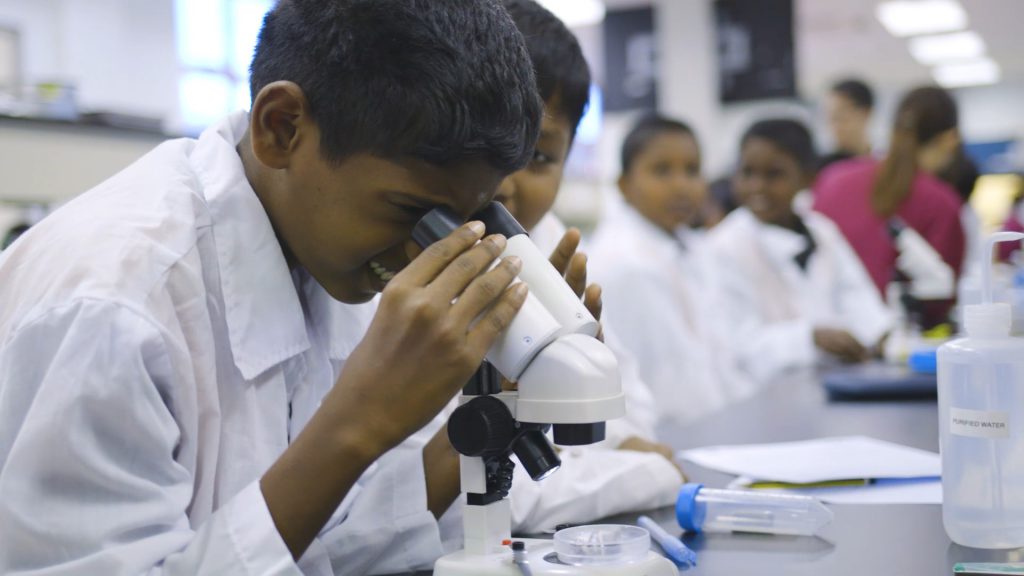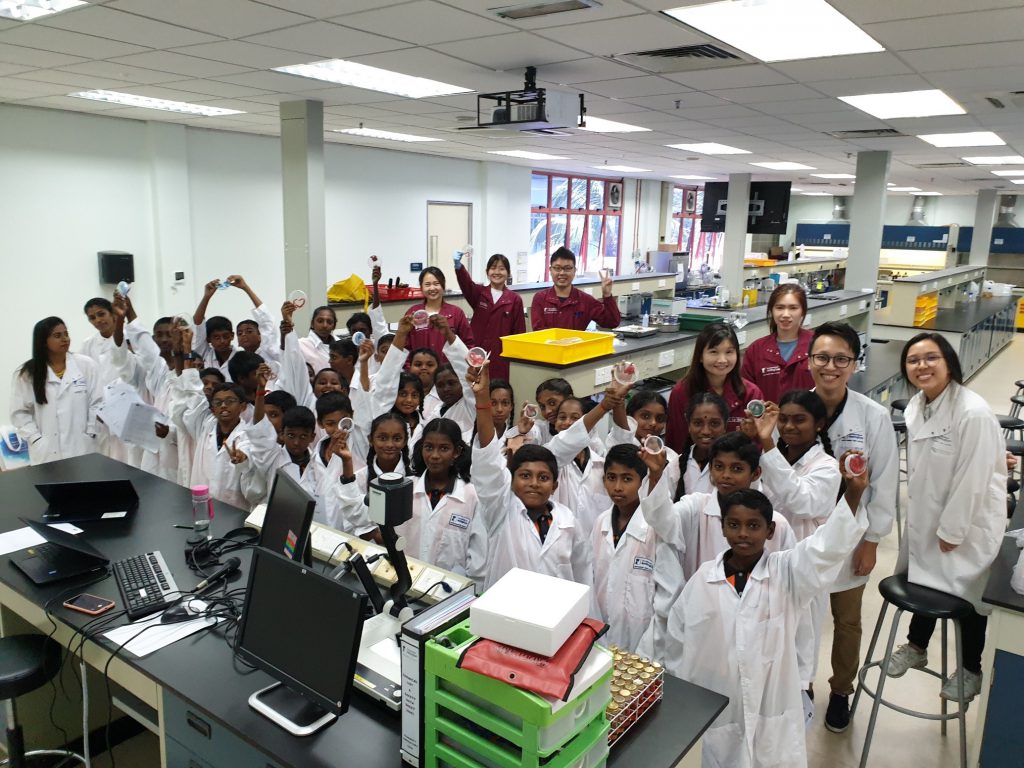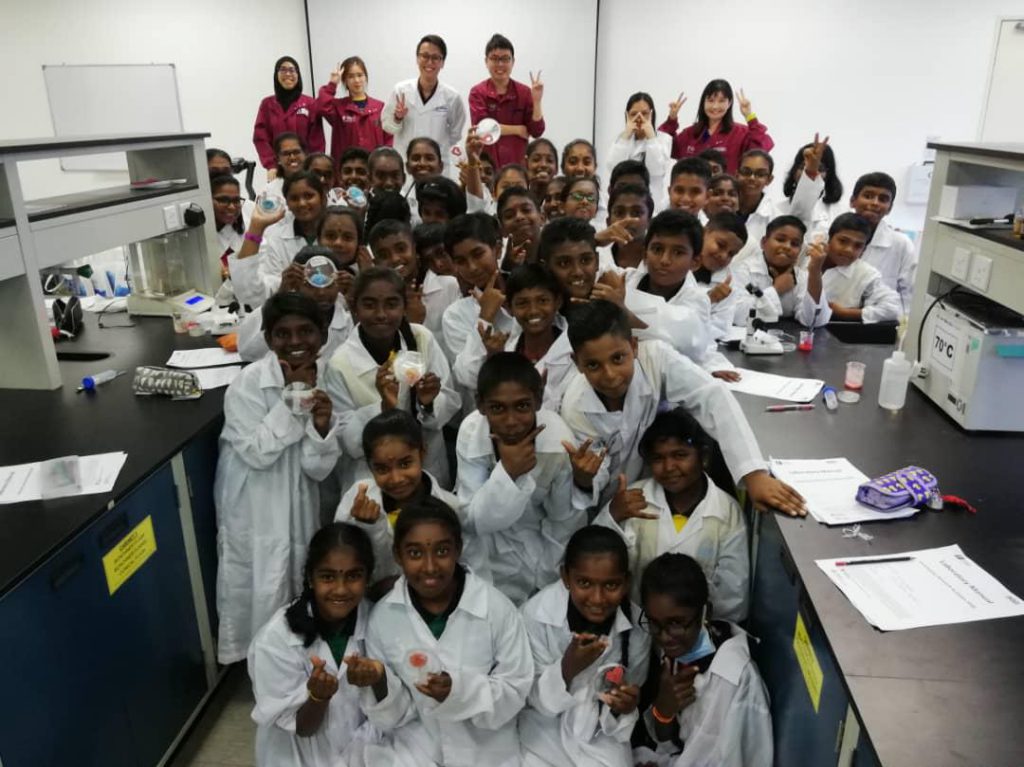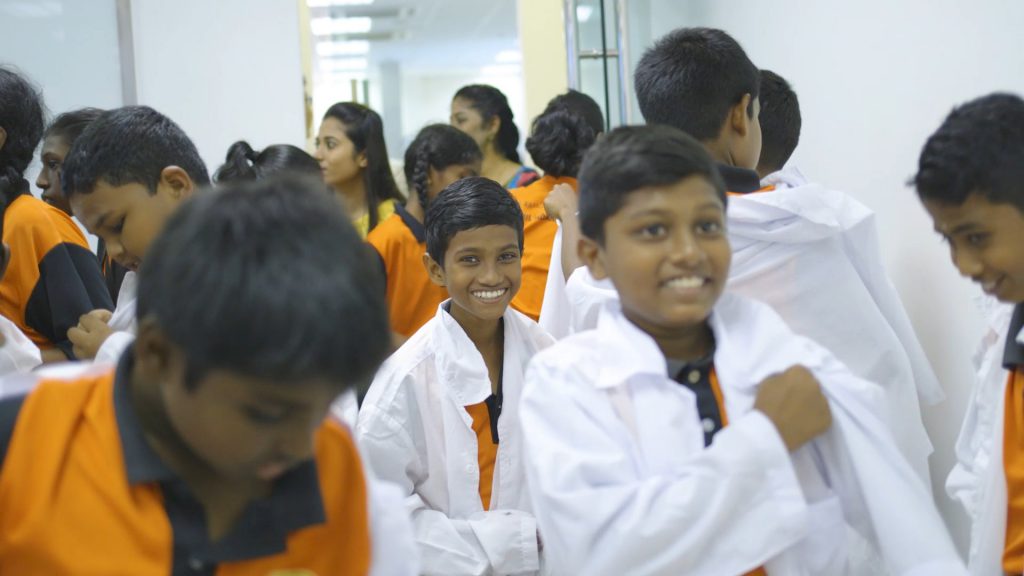April 22, 2020, by ZY
Revamping How Science Is Taught In Schools
It is undeniable that life today has changed significantly compared to the past, and we owe this to the scientific breakthroughs and discoveries that continue to awe us. Despite that, there is a vast body of knowledge that we have barely scratched the surface of.
In an attempt to revamp science education and reignite students’ interest- in science education, students from SJK(T) Ladang Rasak and SJK(T) Bandar Spring Hill visited the University of Nottingham Malaysia for a ‘Kem Motivasi’ session. Funded by the CASCADE grant, this visit aimed to give students a less-than-conventional approach towards science learning where students are merely rote memorising for their exams. It is hardly surprising that students are slowly losing interest in Science. What happened to the true nature of scientific inquisitive learning?

In the sessions, the students were actively engaged in various activities which involved hands-on experiential learning in an actual science laboratory where scientific research is carried out; something they do not have the luxury of experiencing.

Our sessions aim to give students a chance to experience the excitement and thrill of inquisitive learning, without telling them what is right or wrong. Do we really want our students to just accept the answers that we provide, or do we want them to understand and question the way things are? When we bring in creativity and criticality, the answer is obvious.
Here in Nottingham Malaysia, we do not merely accept answers as it is. We believe that the very essence of science education is discovery. However, that is not what we are allowing our students to do in schools. In recent years, our students’ interest in science has been declining, and it is a cause for concern as society moves towards building a larger STEM workforce. Why is this happening? One of the possible reasons that we can attribute this loss of interest to our approach towards science education. Unfortunately, students are still fixated on rote memorisation, and more often than not, it is solely for getting more A’s. Educators become jaded with traditional lecturing which further starves the students from opportunities to develop their critical thinking and problem-solving skills.


Our sessions diverge from traditional methods. The sessions involved a plethora of questions which the students would have to put their critical thinking hat on. Students were required to provide a justifiable rationale to all their answers to encourage metacognition. This should be fundamental towards any science learning.
These visits were funded by Cascade grant (University of Nottingham) under the project ‘Promoting Science Using Microscopes.
Article written by: Allen Chee Jie Ein (Research Assistant, School of Education)
-
Post a comment

